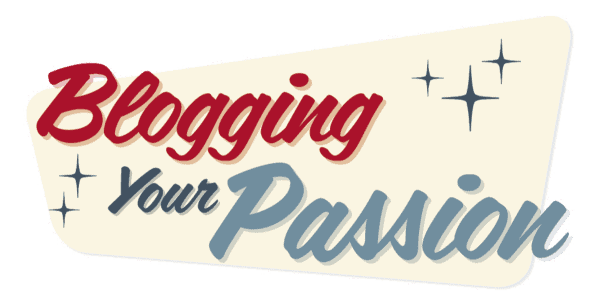Blogs vs. Podcasts: Which is Best to Reach Your Ideal Audience?

Deciding between a blog vs podcast for your business can be a tough call.
They are both powerful content marketing tools, each with its own unique advantages and challenges.
In the digital world, the constant battle between blogs vs podcasts seems to be never-ending.
Both mediums offer excellent opportunities for businesses to connect with their audience, build brand loyalty, and generate leads. But which medium is more suited to your business needs?
Let's dive deep into the world of blogs and podcasts to help you make an informed decision.
Table of Contents (click to expand)
- Understanding the Basics: Blogs vs Podcasts Explained
- My Personal Experience Running Blogs and Podcasts
- Podcasts vs Blogs: A Comparative Breakdown
- Factors to Consider When Deciding Between a Podcast vs Blog for Your Business
- Experiment with Both a Blog and Podcast
- FAQs about Blogs vs Podcasts
- Is a Blog or Podcast Better?
- Why Are Blogs Better Than Podcasts?
- What is the Difference Between a Blog and a Podcast?
- Is a Blog or Podcast More Profitable?
- Should I Start a Blog or a Podcast First?
- Should I Turn My Blog into a Podcast?
- Final Thoughts
Understanding the Basics: Blogs vs Podcasts Explained

The first step in choosing between a blog and a podcast is understanding what each medium is and what it entails.
A blog is essentially a web-based platform where regular, fresh content is published. Content on a blog can range from news articles to how-to guides, opinion pieces, and more. You'll need a web hosting account and a knack for engaging writing to run a blog.
On the other hand, a podcast is akin to an online radio show, with recurring episodes often centered around a specific theme or topic. You'll need a dedicated podcast hosting platform, good communication skills, and a quality microphone to host a podcast.
The most apparent distinction between the two mediums is the format. Blogs are text-based and often include images or other visual elements, while podcasts are audio-based.
My Personal Experience Running Blogs and Podcasts
I started my first blog in 2009.
I started my first podcast in 2012.
I've had the unique experience of leveraging both mediums in various niches. While I will break down the pros and cons of blog vs podcasts. I also want you to know that you can use both mediums in your business.
Depending on your availability, you might want to start with one in the beginning. The advantage of starting a blog first is that you can repurpose all of your written content and easily create podcast episodes.
This was great for me at the beginning of launching a podcast because I did not have to develop new topics. I simply recorded the audio version of my blog posts (adding additional commentary where needed).
Let's now break down the essential points of the blog podcast debate.
Podcasts vs Blogs: A Comparative Breakdown
To decide whether to start with a blog or a podcast, it's essential to consider the unique attributes and differences between them. Let's delve into a comparative analysis to help you make an informed decision.
9 Compelling Reasons to Start with a Blog

In case you're leaning towards starting a blog, these reasons might resonate with you:
- You have a flair for writing: If you enjoy writing and find it easier to express your thoughts in written form, blogging might be your preferred choice.
- You have the time and resources to commit: Starting a blog requires a lot of effort, time, and resources. You'll need to commit to writing and publishing regular content if you want your blog to be successful.
- You want to reach a wide audience: Blogs are powerful content marketing tools that can help you reach an extensive audience. You can also use Search Engine Optimization (SEO) tactics to increase your blog's visibility and organic traffic.
- You want more control over the design: Blogging platforms like Ghost give you complete control over your website's design. You can customize it according to your brand's needs without any coding knowledge or experience.
- You want an easy way to monetize your content: With blogs, you can make money blogging in multiple ways, such as Google AdSense, affiliate marketing, sponsored posts, and more.
- You're on a tight budget: Setting up a professional blog doesn't have to break the bank. With a reliable Ghost theme and good writing skills, you can create a visually appealing blog without spending a fortune.
- Your content creation pace is slow: Unlike podcasts, blogs allow you to work on your content gradually. You can draft a blog post and keep refining it over time.
- You want to boost your website's SEO: Blogs are text-based, making them an excellent tool for improving your website's SEO. A well-optimized blog post can help you rank higher on Google.
- You wish to showcase your writing prowess: A blog can be an excellent platform to exhibit your writing skills, especially if you're considering a career in freelance writing.
9 Persuasive Reasons to Launch a Podcast

If the above reasons didn't resonate with you, you might find these reasons to start a podcast more appealing:
- You want to foster a personal connection with your audience: A podcast can help you establish a deeper connection with your audience as they can hear your voice, tone, and expressions.
- You're more comfortable speaking than writing: If you find the process of writing challenging or tedious, podcasting might be a better fit.
- You can dedicate solid blocks of time to content creation: Podcasting often requires batch recording of episodes, which can take up a significant amount of time in one sitting.
- You're keen on interviewing industry experts: Podcasts often feature guest podcast speakers, making them an excellent platform for networking and gaining new insights.
- You wish to hone your speaking skills: If you're contemplating a career in public speaking or want to improve your speaking skills, podcasting can be an excellent medium to practice.
- You want to reach a wider audience: Podcasts are distributed on multiple platforms, such as iTunes, Spotify, and Stitcher. This means that your content can reach a much larger audience than a blog post.
- You wish to build an engaged community: Podcasts allow you to interact with your listeners directly. You can even have a dedicated channel for podcast-related discussion and feedback.
- You're looking for more creative freedom: Podcasting allows you to experiment with different types of content - from audio stories to interviews - which might be difficult to pull off in written form.
- You want to stand out from the competition: With the growing popularity of podcasts, it's becoming increasingly important for businesses and professionals to have their podcasts to stay ahead.
No matter your reasons for starting a podcast, it's important to remember that it requires dedication and hard work. You should plan your podcast carefully, from the topics you'll cover to the format and length of the episodes.
Choosing the right microphone and recording software is also important to ensure your podcast sounds professional. You'll also need to decide which platforms to distribute your podcast on and how to promote it.
Finally, you should also consider the legal aspects of podcasting, such as copyright laws, music licensing, and contracts. Taking the time to research and understand these topics can help you create a successful podcast.
Factors to Consider When Deciding Between a Podcast vs Blog for Your Business

While personal preferences and skills play a critical role in deciding between a blog or a podcast, it's equally important to consider what would work best for your business. Here are a few factors to consider:
- Your target audience's age: Podcasts generally appeal more to younger audiences, while blogs might better suit an older demographic.
- The convenience factor: Consider whether your target audience would find engaging with a blog or a podcast easier. This largely depends on their lifestyle and daily routines.
- What you're selling: The nature of your product or service can also influence whether a blog or a podcast would be more effective.
- The importance of SEO to your business: If improving SEO is a priority for your business, a blog might be the better choice.
- The type of content you want to create: A blog or a podcast could be more suitable, depending on the content you want. For example, a podcast might be the more appropriate choice if you're looking for an interactive platform.
- Your budget: Podcasts require more time and resources to produce than blogs. So if you're short on budget, starting with a blog might make more sense.
- Ability to create engaging content: No matter your chosen medium, the key is creating engaging and relevant content that resonates with your audience. A blog or podcast can help your business grow effectively and sustainably with the right strategy and consistency.
Ultimately, the decision between a blog vs podcast for your business should come down to the type of content you want to create, your budget, and the audience you're trying to reach.
With the right strategy and consistency, either a blog or podcast can be an effective way to reach your target audience. It's important to consider all factors carefully before making a decision so that you can create engaging content that resonates with your audience and helps your business grow.
The High Importance of Consistent Content
No matter which medium you choose, it is essential to be consistent with your content. Keep in mind that it takes time to build an audience and establish a presence in any industry. Creating quality content that resonates with your target audience and provides value is important.
You should also promote your content through social media and other digital marketing strategies. Podcasts can be a great way to engage with customers and build relationships, but focusing on the bigger picture and developing a long-term plan for success is important.
It's essential to note that many businesses successfully run blogs and podcasts. However, most of them start with one before gradually incorporating the other.
Experiment with Both a Blog and Podcast
Can't decide between a blog and a podcast? Why not try both and see which one fits your business better? You can start by setting up a blog, as it's relatively easier and quicker. If you later decide to pivot to podcasting, you can use your blog to publish show notes or transcripts of your podcast episodes.
No matter which platform you choose, it's important to have a content strategy to help you get the most out of your blog or podcast.
Creating content regularly and consistently is essential for gaining traction and reaching your target audience. To ensure that your content resonates with them, it's important to understand their interests and preferences.
For example, if you're targeting millennials, consider creating content related to technology, lifestyle trends, and social issues.
It's also important to measure the success of your blog or podcast.
It will help you track the performance of each post or episode and determine which topics resonate better with your audience. This way, you can adjust your strategy and tailor your content for maximum engagement.
FAQs about Blogs vs Podcasts
Is a Blog or Podcast Better?
The choice between a blog or a podcast largely depends on your target audience and the type of content you wish to create. Blogs are great for in-depth, searchable content, while podcasts are ideal for sharing insights and stories more conversationally.
Why Are Blogs Better Than Podcasts?
Blogs hold a slight edge over podcasts because they are more accessible and easier to produce. They also work well for SEO purposes, increasing your visibility online. Readers can easily skim through and find the information they need with blogs.
What is the Difference Between a Blog and a Podcast?
A blog is a regularly updated website or webpage where individuals or brands share written articles on various topics.
In contrast, a podcast series is a digital audio or video file series that users can listen to or watch at their convenience. In essence, while a blog is a written medium, a podcast is an auditory or visual medium.
Is a Blog or Podcast More Profitable?
Both blogs and podcasts have the potential to be profitable, depending on factors like audience reach, monetization strategy, and niche.
While blogs usually generate income from ad revenue, affiliate marketing, and sponsored posts, podcasts earn from sponsorship deals, ads, and sometimes, listener donations.
Should I Start a Blog or a Podcast First?
If you're just starting out, starting with a blog might be more practical. Writing a blog can help you refine your ideas, develop your voice, and establish an online presence.
Once you have a solid reader base, you can consider launching a podcast to diversify your content.
Should I Turn My Blog into a Podcast?
Converting your blog into a podcast can be a smart decision if you want to reach a wider audience. Not everyone has time to read long articles, but they might have time to listen to a podcast during their commute, workouts, or while doing household chores.
By repurposing your blog content into podcast episodes, you can cater to different audience preferences and expand your reach.
Final Thoughts
Whether you opt for a blog or a podcast largely depends on your business goals, target audience, and personal skills and preferences.
Both platforms offer excellent opportunities to reach out to a global audience, share your message, and grow your business.
Also, remember that you don’t have to choose one over the other when it comes to blogging or podcasting. You can easily use both mediums to maximize your reach and achieve desired results.
By combining the power of words with audio-visual elements, you can create an engaging experience for your audience.
You should also consider leveraging other digital marketing channels, such as social media and email marketing, to promote your blog and podcast content.
This will help you reach a larger audience, drive more traffic to your website, and increase conversions.
Finally, remember that consistency is key in blogging and podcasting – the more consistent you are in producing quality content, the higher your chances of success will be.
